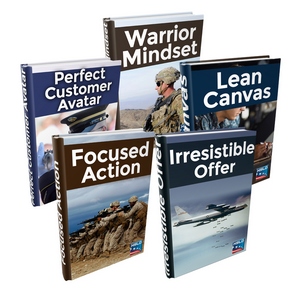This post is based on the podcast Byron Chen Founder of Successvets.com.
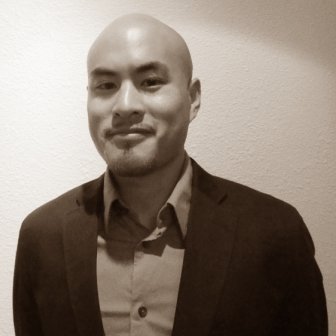 Welcome to High Speed Low Drag, the podcast for veterans and soldiers transitioning into the civilian world.
Welcome to High Speed Low Drag, the podcast for veterans and soldiers transitioning into the civilian world.
War veteran John Lee Dumas interviews other veterans who are crushing both business and life, revealing the path they took to achieve outstanding success.
Veterans, are you prepared to ignite?
John: Veterans, are you interested in owning your own business? Join me, Antonio Centeno and Tom Morkes, all successful entrepreneurs and veterans, as we talk about what it takes to build your own business from scratch by leveraging the skills you developed while serving your country. And you’ll have the support of a community of veterans that are committed to helping you succeed. Visit highspeedelite.com. That’s highspeedelite.com.
High Speed Nation, John Lee Dumas here, and I am fired up to bring you our featured guest today, Byron Chen. Byron, are you prepared to ignite?
Byron: John, let’s blow it up.
John: Yes. Byron is a former Marine Corps officer and founder of SuccessVets.com, a resource blog and podcast for veterans. His goal is to provide the best advice, insight and inspiration on making the transition, developing an awesome career and building a fulfilling life after the military. Byron, I’ve given High Speed Nation just a little insight, so share more about you personally then expound upon the biz.
Byron: Yes. SuccessVets.com is something I built after I left the Marine Corps and I found it to be, the transition to be one of the hardest things I’ve ever done, even after the military. So, I knew there had to be a better way. And Succesvets.com is my blog and podcast. It’s where I interview veterans, learn about their journeys and then pass along the lessons learned from their transition. Through that, I’ve helped veterans land jobs, negotiate their starting salaries and consulted with me on taking the next steps in their career or business so it’s been an awesome ride.
John: Well, I’m really excited to chat about that as well a little intersection that you and I had about two years ago now. Well, about a year and a half, a year and eight months ago now. And so much more, Byron. But before we get into all that jazz, we always start with a success quote. So take it away and share with us why you chose it.
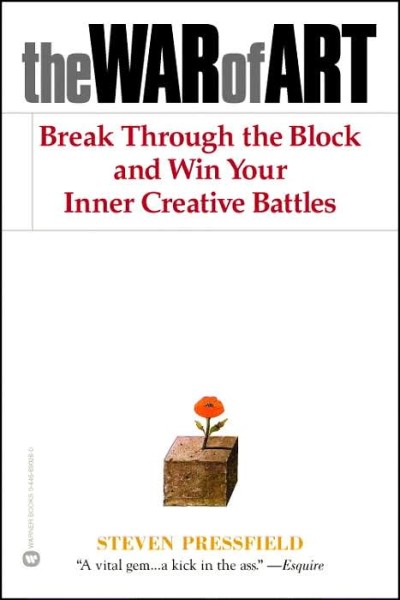 Byron: All right, John. So I’ve listened to hundreds of your shows and I want to make sure that I got something that’s important to me but also adds value to your audience, maybe something new. And it was really tough, but I think I found it. So are you ready? All right. So this is from Steven Pressfield’s War of Art. He says: “Never forget this very moment can change our lives. There never was a moment and never will be when we are without the power to alter our destiny.”
Byron: All right, John. So I’ve listened to hundreds of your shows and I want to make sure that I got something that’s important to me but also adds value to your audience, maybe something new. And it was really tough, but I think I found it. So are you ready? All right. So this is from Steven Pressfield’s War of Art. He says: “Never forget this very moment can change our lives. There never was a moment and never will be when we are without the power to alter our destiny.”
John: Boom, Byron. I can tell you I just went through the 750 episodes of Entrepreneur on Fire. That was never spoken.
Byron: Awesome, awesome.
John: So why did you choose that?
Byron: I mean, I started this journey years ago. I mean, I’ve always wanted to build a business or be an entrepreneur but I couldn’t do it. I always had these excuses. And then I’d stopped when it got too hard or the money didn’t come in and I’d say, “Oh, I’m comfortable where I’m at. I don’t have a co-founder. I’m getting a new job. I’m moving.” All these things that I was prioritizing. And then I sat down and took a look and I was like, “Why am I spending all this time doing things that I don’t really care about?”
And I realized it was because it is so much easier to do things that you don’t care about that to spend time on things that you do care about because those things that you care about are going to be hard. You know it’s going to be hard. There is that resistance. And I didn’t know anything about podcasting and reaching out to important people or running blog posts. But last year, I finally said, “This is it. I’m dedicating myself to this because it matters so much to me. The survival of my true authentic self — something you talk about — depends on it.”
And so that’s when I put in the work. Whether or not I was ready or tired or scared, I just made it a part of my day. As soon as I finish brushing my teeth before breakfast, I’m scheduling time to work on SuccessVets around my day job, when I come home. I’m working on weekends. And I’m doing it because I want to help veterans. I’m doing it because it’s work that really matters to me. And now, by taking on that mantra, I have an audience, I have network, I have new opportunities. And it’s because I decided my situation isn’t going to dictate what I do. Instead, I’m going to take control and despite the challenges that might be my way, I’m going to do what I really care about.
John: Byron, I love that phrase that you used — survival of my authentic self. High Speed Nation, I mean, I just want you to absorb that real quick. I mean, for me, my authentic self was suffocating. It was being choked out like MMA style. I was like law school, corporate finance. It was just not me.
And in order for my authentic self to actually survive and to thrive, I just had to let go or I just had to say, “You know what, I’m done chasing dollars in law and finance. I’m done chasing “respectful career paths.” I’m off to now chase what I know I’m meant to do in this world and thrive because of it.” And when you really grasp that, High Speed Nation, and really take off like Byron has and just given himself over to it, that’s when the progress begins.
Byron, let’s dive into your military journey now. You’ve had a pretty interesting journey in the military specifically but I want you to share a pivotal moment that you would actually define as your most pivotal moment in the military, in the Marine Corps. Share with us that story.
Byron: My most pivotal moment. This reminds me of when I first joined the military. I come from a hometown where nobody joins the military. It’s suburban, lots of immigrants, first generation. They’re all going the college path and things like that. But I was a Boy Scout, service to others was important to me. And I didn’t know if I could do it. I was kind, “I’m kind of goofy. Am I ready for the military?” But service was important to me. It’s something I cared about.
And so I went and graduated from the United States Naval Academy and then I was commissioned as an officer in the Marine Corps. So you can imagine this goofy first generation immigrant going into I feel one of the toughest services in the military.
John: Let’s just say the toughest. I mean, this is coming from an Army guy. I could say it.
 Byron: Yeah, I don’t want to get into that debate here. But something I was really proud of but at that time really scared. I doubted myself. I thought, “You know what, if this really means that much to me, I’m going to do it and I will figure it out.” And I was able to have a successful six-year career in the Marine Corps and something that I will take with me for the rest of my life. So I’m glad I didn’t back down from what was truly important to me just because I was worried that I wasn’t the right person for it. I just knew this is what I care about. I’m going to go and do it.
Byron: Yeah, I don’t want to get into that debate here. But something I was really proud of but at that time really scared. I doubted myself. I thought, “You know what, if this really means that much to me, I’m going to do it and I will figure it out.” And I was able to have a successful six-year career in the Marine Corps and something that I will take with me for the rest of my life. So I’m glad I didn’t back down from what was truly important to me just because I was worried that I wasn’t the right person for it. I just knew this is what I care about. I’m going to go and do it.
John: So let’s un-package that though. I mean, that was a big step. That was a pivotal decision that you made. Now, looking back, hindsight is 2020, but looking back, what is the lesson that you can pull out of that, that you can think as really valuable for our listeners?
Byron: Yes. When I was making the transition into the civilian world, I kind of forgot about all of that. All the stuff that I did in the military, I was all of a sudden like leading Marines when I was in combat, leading convoys throughout Iraq, stuff that, in retrospect, that takes a lot to do. Once I went into the civilian world, for a second, I forgot all of that, that I had that in me, and I was like, I’m not ready for this. I need to go to school or get more training. I’m just at the mercy of these interviewers. I have no idea whether or not I could be of value to their companies.
When I took a step back and started to talk to my mentors, they said, “You’ve got all the experience that you need. You just need to change your mindset. Be confident in what you’re able to provide and communicate that and you’ll be fine.” That’s really when I able to successfully transition. Because before that, I was struggling and really thinking, doubting my decision.
John: Let’s talk about that transition. Take us to that transition period. Talk to us about some struggles that you faced specifically while you transitioned out.
Byron: Yeah. I think the biggest struggle — I mean, my initial transition was to get a job in the [0:08:46] [Indiscernible] I’m currently doing. And my first several interviews were not very successful, I don’t understand why. And I started to realize that because I was doubting myself. You know that your behavior, your mindset affects your behavior, which affects your actions, which affects your results. And so that’s kind of like the first time you ask a girl out. I don’t know if you remember that, John, but if you were like me–
John: Oh, yeah.
Byron: Yeah. You come off as pathetic because you don’t realize that you might be a catch, right?
John: It wasn’t just the first time for me. It was pretty much every time I asked a girl out.
Byron: Well, it’s a learning process. And the way I learned to communicate my value more effectively was I started to reach out to successful veterans that I saw. Fortunately, a lot of them were veterans who were willing to take my call. And I just ask: What is it that I should be doing? That’s when they told me, “Look, you got the military experience. You just have to have the confidence to go after it.”
I observed how they talked, how they communicated, how they presented themselves. I was like, “I can do this. I can face the same challenges that they do and come out on top.” As long as I start presenting myself as value in explaining how I can solve problems for people, that’s when the job interviews started becoming successful and I started to get offers and that’s when I started to be successful in my job search, get interesting people to interview on SuccessVets and connect with other mentors.
John: So, Byron, I really want to keep moving forward here because you just have a lot of great stories to tell. You shared with us that you had struggles with your first few interviews. You didn’t really know why. Looking back, in hindsight, now you see you doubted yourself internally. But as you continue to move forward and you got that first job and you continue to say, “Okay, I want to continue to grow. I want to continue to really search my authentic self to see what that really is and what that really means,” you had some aha moments. You had some epiphanies throughout that journey. Tell us a story of one of those aha moments. What are those light bulbs that you had go off? Take us to that moment, Byron, and really unpack it for us.
Byron: Well, let me take a second for this one, John, because there is so many aha moments along the way that you don’t recognize until you get there. But the one that I think I want to bring up is I was conversing with a couple of other veterans about our journey. We were talking about how hard it was for us to do all this. I didn’t understand why. We were trained in the greatest Armed Forces in the world. We should have been able to jump right into the civilian world and attack it and do really well.
John: Attack.
Byron: Right. And then what we realized is there isn’t really a good resource to do all this. There are a lot of veteran organizations out there. But veterans want to learn from other veterans. And when I was talking to my buddies, that’s when I had this aha moment. I’m like, “Well, you know, there’s a thing called podcasting out there where you can record all these types of conversations that we have together and we could put it out to the world to pass on to other veterans.”
And that was my big aha moment combined with, of course, seeing you in San Diego talk about podcasting and the way you used it to expand your influence and teach other people about entrepreneurship. And I thought, “You know what, this is just perfect timing.” This is what I’m going to use to help teach veterans the skills and the lessons that they need to transition into the civilian world.
John: So looking back on that now and saying, “Okay, it took me this long to get to that aha moment, to understand what it meant.” What would you want to share with the listeners who are trying to find their authentic selves, that are looking for their aha moment, their epiphanies? What would you want to share with them?
Byron: Well, it really helped for me to have a mastermind and something we haven’t got into. But I was meeting weekly with these other veterans to talk about goals we had, things that we wanted to work on and succeed in. And every week, I have all these different ideas about stuff I was going to work on and I never really did it.
And it took another veteran, another person whom I trusted to say, “Look, you’ve got all these ideas but you’ve got to commit to one and dedicate yourself to it. And that’s the only way you’re going to know whether it’s going to be a success or not. It doesn’t matter if it will be. It just matters that you commit to that work.” Yeah, that’s really what caused me to focus and narrow it down and start really producing content.
John: So that’s really powerful because I feel like it’s that committing. And we brought up Steven Pressfield a lot in the past two episodes because his work is just all about conquering that fear and about eating that fear monster and about getting up before fear wakes up so you can actually just start getting that momentum rolling. So, Byron, move things forward now into right now and to today and share with High Speed Nation what really has you fired up right now? What’s stoking your flames?
Byron: Oh, man, the most awesome thing is being able to connect with other veterans and learning about the awesome things they’re doing and then helping them along their process. Because everybody has problems that need to be solved. There’s always something there where I can give feedback and they can help me with an interview. And so just getting that one email from one of the veterans who said they’ve learned a lot from what I’m doing with SuccessVets is just that flame that keeps me going.
John: The flame that keeps you going. Let’s just even unpack that more as far as where you see that going in the future. I mean, what are you seeing when you’re engaging with people, when you’re talking with your mastermind, when you’re seeing just the results that people are having when they’re interacting with your brand, with your website? What’s the future hold?
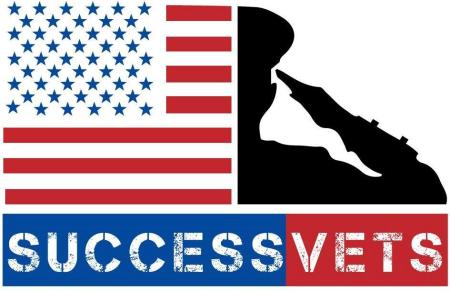 Byron: So what’s exciting me about SuccessVets is that instead of just helping one veteran at a time through my podcast, I’m starting to connect with businesses so that I can help veterans on a bigger scale.
Byron: So what’s exciting me about SuccessVets is that instead of just helping one veteran at a time through my podcast, I’m starting to connect with businesses so that I can help veterans on a bigger scale.
This is something pretty recent, just something that I’m starting to follow-up on. Businesses are starting to realize that veterans are one of the best and most competitive candidates in the workforce. But they have to compete with the attention of veterans who are being attracted by top two business schools, consulting companies and their own competitors and marketplace who are trying to cherry pick top talent.
So I’m starting to work with these businesses to improve their screening process, their onboarding process and the retention process in hiring veterans. I think this will end up helping a whole lot more veterans and a lot of great companies at the same time.
John: So I’m going to ask you an easy question and then I’m going to ask you a hard question. How did your military experience help you in your current role?
Byron: I would say the military network is probably the strongest in the world. I mean, I’ve never had any problem, any trouble connecting with other veterans or seeking advice and getting help. And that’s been so important along the journey. It’s not something that you can do on your own and so I’m always reaching out to that network and building it and developing it so that they can help me and also so that I can help them.
John: What is — Or let me rephrase this. How has your military experience hurt you in your current role?
Byron: I would say that one thing that it has hurt me is that I apply a standard from the military to the things that I do and to the people that I work with that can’t always compete in the civilian world. And I don’t have that hard charging sergeant anymore. I don’t meet as many people who are dedicated to something because it’s a matter of life and death, which is understandable because not everything is life and death. And so I’ve had to take a different leadership attack. I still train and motivate people but I do it in a much slower pace. And that can be frustrating to me being used to the tempo of the military but something that I have to get used to.
John: All right. Well, I told you it was a tough question. You did a very valiant job answering. Byron, we’re going to enter the lightning round. This is where you get to share incredible resources and mind blowing answers. Sound like a plan?
Byron: Definitely, John. I’m excited.
John: What was the most difficult adjustment you had to make to the civilian world?
Byron: Not everyone has the same values. You have to work to find the good people out there and there are many. But you have to find those whom you can trust. And it’s not as easy when not everyone has gone through that experience like the military.
John: What business advice would you pass along to those making that transition now?
Byron: You have to build the habits to become a successful entrepreneur. Despite what it looks like, very few people get everything right when they first start out. I mean, this is what I thought. But even the superstars out there like Warren Buffett, for example, he started investing when he was ten or 11 years old. And he didn’t make his first million until another 22 years of investing. So don’t worry if you haven’t made it yet. Just keep working at it.
John: Share one of your personal habits that you believe contributes to your success.
 Byron: John, you heard of the Pomodoro Technique?
Byron: John, you heard of the Pomodoro Technique?
John: I use it every day.
Byron: Okay. I just started using that and it’s been mind blowing. I work for 25 minutes at a time, take a five-minute break in between, with one long break after the fourth work session and it’s just enough time to stay interested and want to continue working after the next break and it has really upped my productivity and focus.
John: And what do you do during those five-minute breaks?
Byron: Oh, I take a walk. I mean, I’ve got a dog who feels like she’s getting ignored so I make sure that she gets a little playtime.
John: Very cool. How do you actually time that?
Byron: I downloaded an app. It’s the Pomodoro timer. I’ll put out really quick.
John: I actually use a website called tomato-timer.com and it’s just right there in my browser. So I can just click on that and then boom it just starts the 25-minute countdown.
Byron: I’ll have to check that out.
John: Tomato-timer. So let’s go to the next one now. What were the biggest generalizations of being a vet, if any, Byron, that you’ve had to overcome in the civilian world?
Byron: I think this is a generalization that not just vets have but anybody. The generalization was that my value is based on my certifications or work experience or however somebody wanted to categorize me. And that’s not true. If I can solve problems and I can communicate that effectively, then my value is only limited to what I can negotiate.
John: What book would you recommend to our listeners?
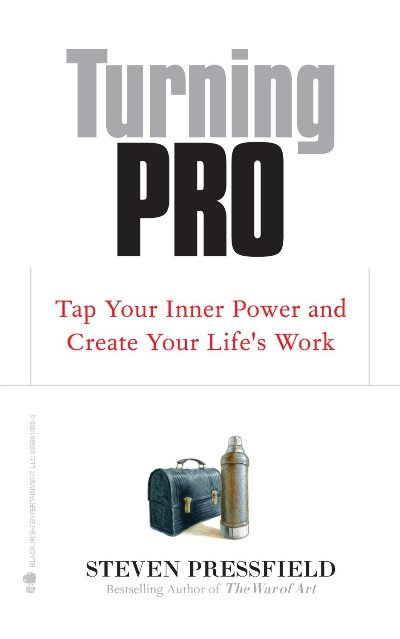 Byron: Well, this time I’m going to have to suggest Steven Pressfield’s Turning Pro. Great book on building the habits to be a pro in whatever you’re doing. And as a bonus, Steven is a veteran. He was a Marine.
Byron: Well, this time I’m going to have to suggest Steven Pressfield’s Turning Pro. Great book on building the habits to be a pro in whatever you’re doing. And as a bonus, Steven is a veteran. He was a Marine.
John: I will tell you that Steven Pressfield is definitely a favorite of veterans because I get a lot of Steven Pressfield books here in High Speed Low Drag and not nearly the percentage on Entrepreneur On Fire, kind of interesting little side note. I’m such a Steven Pressfield fan though. I’m obsessed. So, Byron, let’s end today literally on fire with you sharing one parting piece of guidance, the best way that we can connect with you and then we’ll say goodbye.
Byron: The parting word of advice that say the secret to business isn’t having a great idea. It’s committing and then adapting along your journey in an uncertain environment, making calculated risks and having the discipline and perseverance to continue and the courage to succeed. And these are all skills that you developed in the military. So go for it. Take the leap. To reach me, you can always find me at SuccessVets@gmail.com or on Twitter @SuccessVets.
John: Boom. Well, High Speed Nation, you are the average of the five people you spend the most time with and you’ve been hanging out with Byron and myself, so keep up the heat. And, Byron, thank you for being so generous of your time, your experience, your expertise. High Speed Nation salutes you and we’ll catch you on the flipside.
Byron: John, it’s been a pleasure.
Veterans, your education doesn’t stop here. Go to highspeedelite.com to join the exclusive veterans’ mastermind that will give you the unfair advantage to succeed in both business and life. We have dozens of training courses, HD videos, a private Facebook group, and the chance to interact daily with John and other successful veteran entrepreneurs every month on live hangouts and webinars.
High Speed Elite is more than a mastermind. It’s your ticket to the land of success.
Are you prepared to ignite? Go to highspeedelite.com today to find out more.
